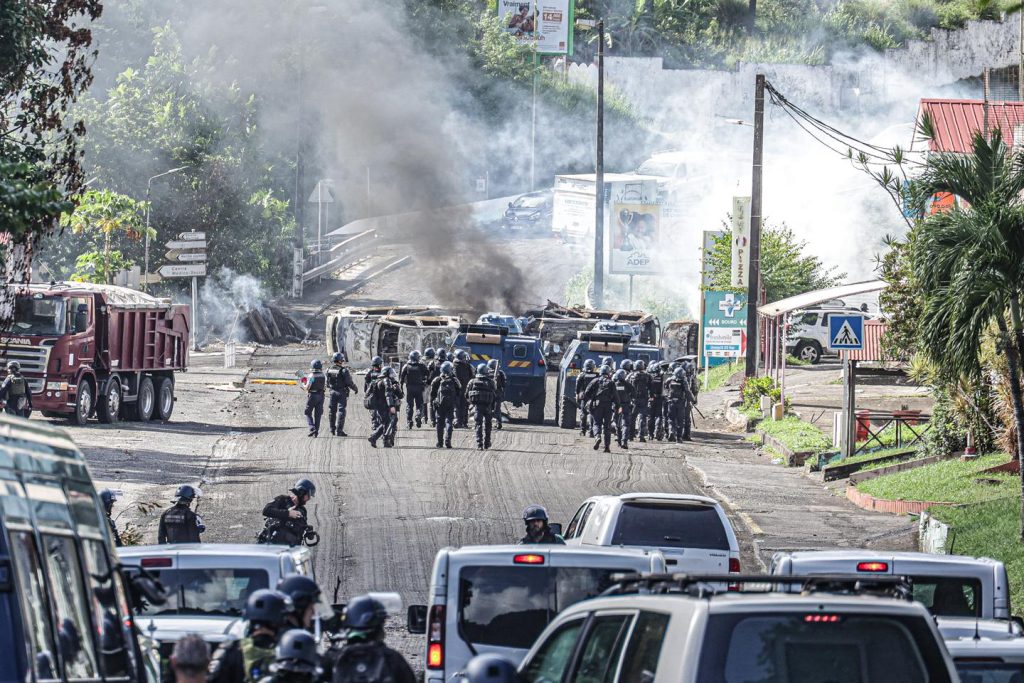The tension continues in Martinique, two months after the start of a protest movement against the high cost of living. Despite the signing of a protocol aiming to gradually reduce the prices of thousands of food products in supermarkets by 20%, the island is still experiencing demonstrations against the high cost of living and urban violence. Several organizations and the Collective for the Protection of Afro-Caribbean People and Resources called for protests on the outskirts of Fort-de-France, with protesters demanding lower food prices. The high cost of food in Martinique, which is 40% more expensive than in mainland France, has fueled ongoing protests.
Protesters have gone as far as demanding the closure of businesses along their route to enforce the strike. The president of the Martinique Employers’ Federation reports that more than twenty establishments were forced to close for the day. Despite the signing of the agreement to lower prices and ongoing efforts to implement it, there are still acts of violence and fear among the population. Violence erupts almost every night on the island, with rioters setting up roadblocks and resisting the authorities when they try to clear the access points. Recent clashes with the gendarmerie in several locations on the island have been reported, indicating a continued escalation of tension.
The situation remains volatile in Martinique, as protesters continue to demand lower food prices and engage in acts of civil disobedience. Despite efforts by the government and local authorities to address the high cost of living, demonstrations persist, with clashes between protestors and law enforcement becoming a regular occurrence. The ongoing violence and disruptions to daily life are causing concern among both residents and business owners, who are facing economic losses and uncertainty. The implementation of the agreement to reduce food prices is being hampered by the continued unrest, highlighting the challenges of addressing social and economic issues in the region.
The mobilization against the high cost of living in Martinique shows no signs of abating, with protests and clashes between demonstrators and authorities continuing to escalate. The signing of the agreement to reduce food prices has not quelled the unrest, as people remain frustrated with the slow progress in addressing their economic concerns. The fear and tension in the region are palpable, as the island grapples with ongoing violence and disruptions to daily life. The authorities are facing a delicate balancing act in trying to maintain order while addressing the underlying issues driving the protests.
Despite efforts to address the high cost of living in Martinique, the situation remains tense and volatile, with ongoing protests and disruptions to daily life. The signing of the agreement to reduce food prices has not alleviated the underlying economic frustrations of the population, leading to continued demonstrations and clashes with law enforcement. The fear and uncertainty in the region are exacerbating the challenges of addressing social and economic issues, highlighting the complex nature of the situation. As tensions continue to simmer, the authorities will need to find a sustainable solution to the underlying grievances driving the protests to restore calm and stability to the region.















